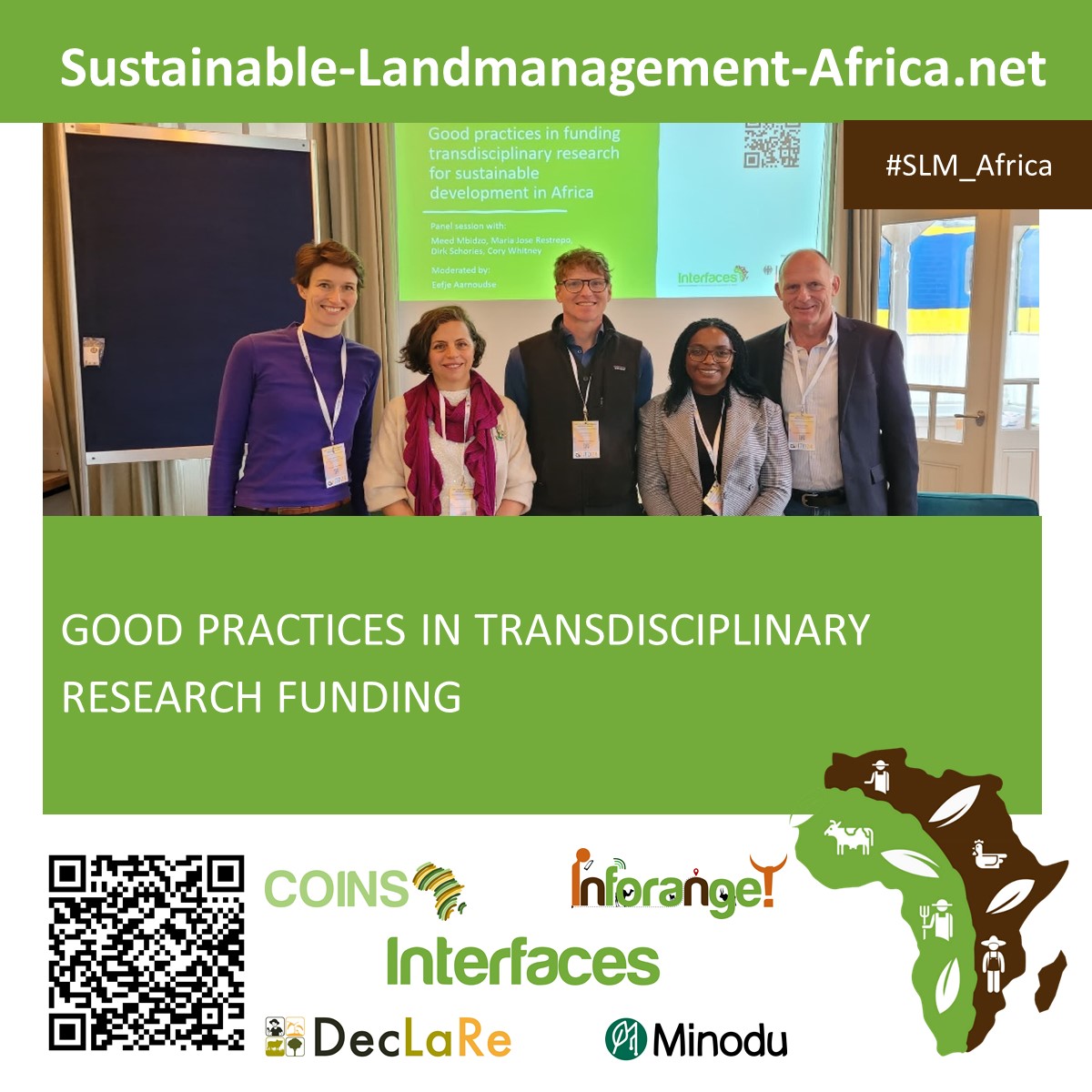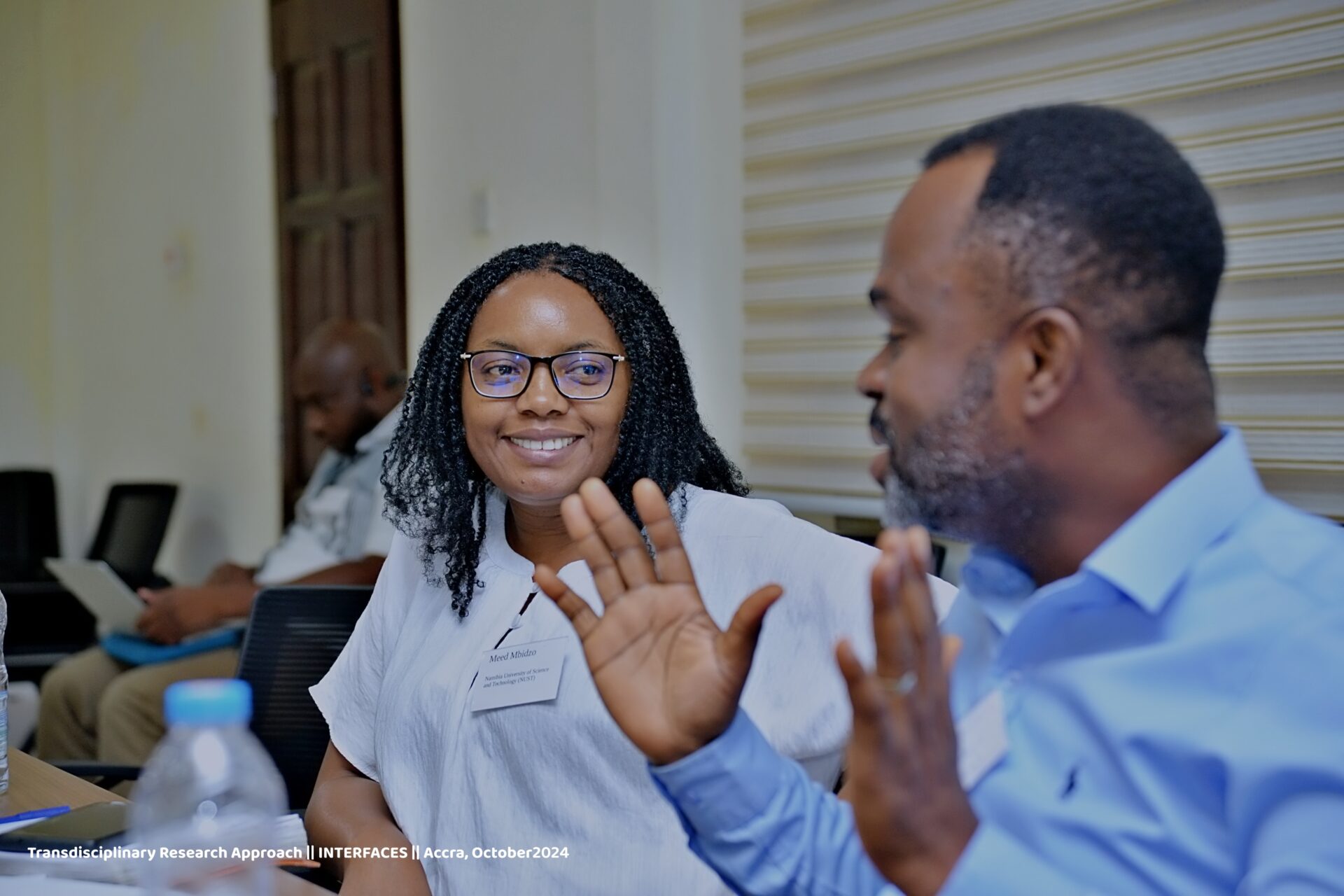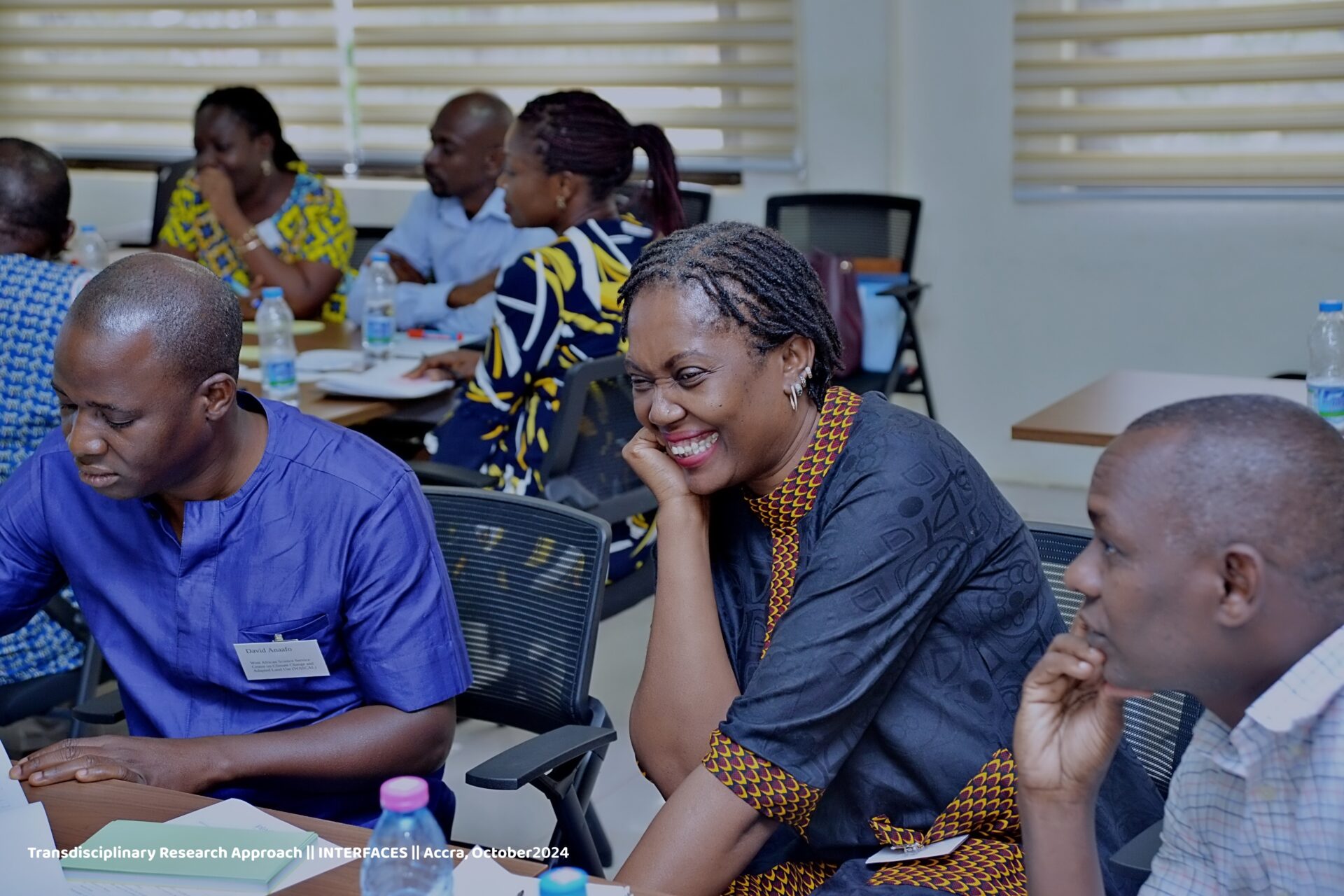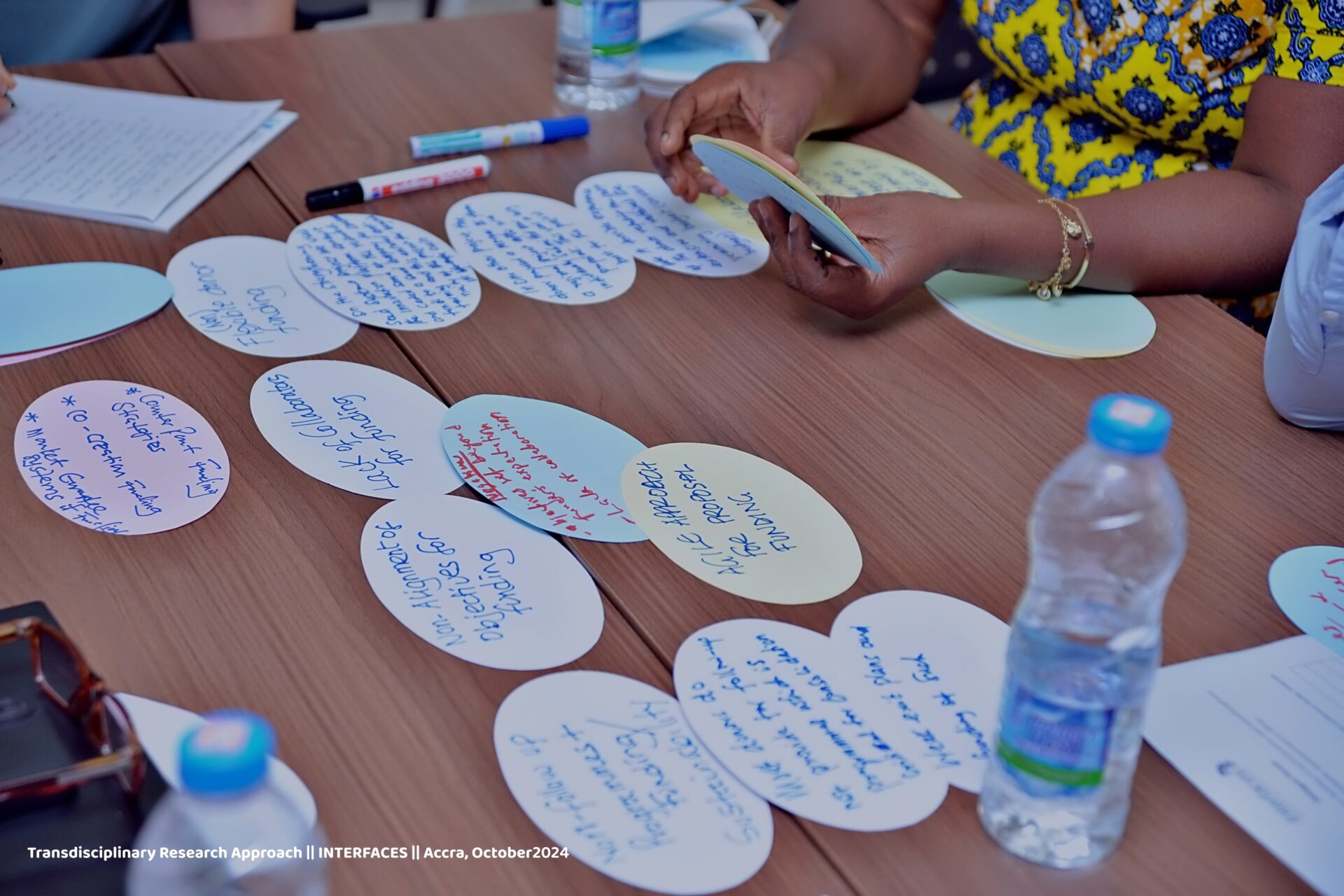Good practices in transdisciplinary research funding for sustainable development in Africa: Insights from ITD Conference 2024
As part of a workshop series on “Good practices in transdisciplinary research funding for sustainable development in Africa,” INTERFACES organized a panel session at the ITD Conference 2024 in Utrecht, the Netherlands. The panel brought together four experts, including transdisciplinary researchers from both the global North and South, and a representative of a research funder. The discussion, moderated by Eefje Aarnoudse from the Hochschule Bonn-Rhein-Sieg University of Applied Sciences, aimed to present new perspectives on funding practices identified during the INTERFACES workshop series and to engage a broad audience interested in transdisciplinary research in a global North-South collaborative context.
The panel session resonated with the core theme of the conference which questions what is needed to move inter- and transdisciplinarity beyond being a buzzword. The conference, organized by the Global Alliance of Inter- and Transdisciplinarity (ITD Alliance), provided a platform to discuss what changes are needed in education, career development and funding programmes to allow transdisciplinary research to flourish. As a result, the conference not only attracted researchers but also saw strong participation from the science policy and research funding community.
The panel session on transdisciplinary research funding in Africa began with a short video showing impressions from previous workshops held in Germany and Ghana, giving voice to different perspectives on the topic. In the video, Jackie Kado of the Network of African Science Academies argued that one of the main challenges of transdisciplinary research in North-South contexts is the divergence of interests between funders from the North and local interests in the South. In response to her statement, Dirk Schories, representing the German Federal Ministry of Education and Research on the panel, acknowledged that funders often have a political interest in prioritising certain topics or questions within a limited timeframe. This can be in conflict with the time required for transdisciplinary research to unfold. Meed Mbidzo, researcher at the Namibia University of Science and Technology, emphasized that the involvement of governmental partners in the countries of research could extend the impact beyond the typical three-to-four-year timeframe.
Maria Restrepo, researcher at DITSL, highlighted that the voices of local community organizations in the global South may not be best represented in a written research proposal. She shared her experience of using video proposals to facilitate the review and selection process. Cory Whitney, researcher at the University of Bonn, also noted that a transdisciplinary research approach benefits from not having everything set out in a written proposal. He shared his experience with a funding line of the German Ministry of Food and Agriculture, which allowed for certain key aspects, such as the specific nutrition intervention under study, to remain open at the time of proposal writing. This enabled a more authentic transdisciplinary research process with local partners in the lead. In response to a question from the audience on how to convince funders of a research idea that has yet to be fully developed, he explained how they had used hypothetical process flows to describe their research approach.
Another audience question shifted the discussion to the review process and how criteria on transdisciplinarity are assessed. Experiences shared by the panellists and the audience indicated a significant variation in how funders approach this. Some funders allocate a considerable sum of money to facilitate interactive discussions among reviewers with diverse perspectives. In contrast, others rely on voluntary written reviews, which often results in funding agencies receiving a collection of rankings from different disciplinary viewpoints.
Overall, the panel session and discussion with the audience revealed a wide range of practices among funding programmes that claim to support transdisciplinary research in the global South. At the same time, there is an increasing understanding of what works well and what needs to be done differently compared to research projects without interdisciplinary and participatory components. One key insight emphasized throughout the discussion was the value of supporting the initial phase of building the research team and writing the research proposal. Providing a seed grant for this purpose has emerged as best practice to enable transdisciplinary research projects. This is especially relevant in a North-South context, where research teams have to overcome not only the hurdles of research-practice collaboration, but also those of North-South collaboration. The lively discussions at the conference and panel session demonstrated a clear interest in learning from one another and getting better at supporting and conducting transdisciplinary research in this context.
For further reading:
IZNE working paper: Aarnoudse, E.; Beuchelt, T.; Fischer, B.; Jaenicke, H.; Terlau, W. (2024): Good practices in funding transdisciplinary and participatory research for sustainable development in Africa: Learning lessons from German public funding programmes on sustainable land management and agricultural development in Africa (IZNE Working Paper No. 24/2). DOI: 10.18418/978-3-96043-119-0



